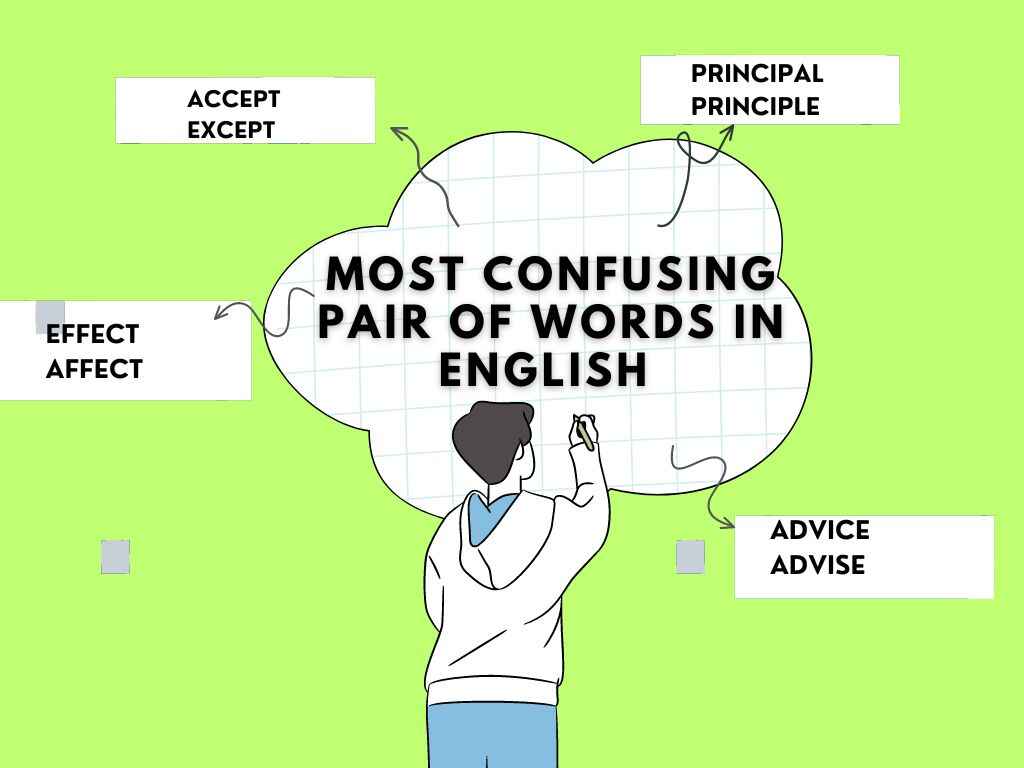Laravel 10 Eloquent whereBetween() Query: A Powerful Filtering Query
Read More


Vocabulary is the most important aspect of language that works as a building block in language development. However, most of the students get confused in different word-forms or word pairs. Sometimes, they are unable to differentiate between the pair of words. Consequently, they are prone to lexical errors. Therefore, in order to avoid the wrong choice of word forms, you must know the differences between the word-pairs of the following lexical items:
The words advice and advice look similar; however, the difference between them is the only substitution of the letters 'c' and 's'. The former with the letter 'c' is used as a noun, while the latter with the letter 's' is used as a verb.
1. Advice (noun): Maria sought advice from her parents before accepting the job offer.
2. Advise (verb): I advise you to study hard for your exams.
The word accept is a verb that means to receive something willingly or to agree to something.
For Example:
On the other hand the word except is primarily used as a preposition or conjunction to indicate exclusion of something.
1. (preposition) I will invite my all friends to my birthday party except Hamza.
2. (preposition) She passed all the subject except Math.
3. (conjunction) I did not tell him anything, except that I needed his bike.
Affect is a verb that means to influence or produce a change in something. It refers to the action of causing an impact or change.
Effect is used as a noun that represents the outcome or result of an action or cause.
A principle is a noun that refers to a fundamental truth, law, doctrine, or belief that serves as the foundation of a system of thought or behavior.
A principal refers to the person who holds the highest rank or authority in an institution, such as a school principal.
Recent posts form our Blog
.png)
.png)



![[SOLVED] CORS ISSUE WITH REACT AND LARAVEL 10 API](https://www.interviewsolutionshub.com/storage/blogs/images/1726047861cors error(8).png)
0 Comments
Like 4